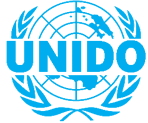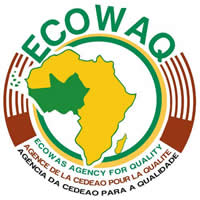





The WAQSP organized a workshop in Dakar, Senegal, from June 10 to 11, 2019, to validate the draft documents related to the ECOWAS Technical Regulations harmonization procedure. It recorded the participation of representatives of the ECOWAS Member States, the ECOWAS Commission and the WAQSP.
Mr. Gbemenou Joselin Benoit Gnonlonfin, Chief Advisor, SPS, ECOWAS, USAID Standards, representing the ECOWAS Directorate of Agriculture and Rural Development, informed participants that "Intra-regional trade is estimated at 12%, unlike to the SADC (Southern African Development Community) area where it is at 45% ", before encouraging them in these terms:" The work you do is very important; it will help remove the obstacles to raising the level of trade. "Aka J.J. Kouassi, Chief Technical Advisor of WAQSP, took the opportunity to recall the context: " ECOWAS has developed standards, particularly in the framework of ECOSHAM (The ECOWAS Harmonization Model). If we manage to make them mandatory (regulations), in any case those that deal with the most sensitive areas of our economies, this will necessarily raise this level of trade. Now, we will have to harmonize these rules if we want to avoid that regulations put in place in some States constitute technical barriers to trade for others. "
Representatives of the authorities, stakeholders, welcomed the progress and set the challengers. "Building a Quality Infrastructure in a region of more than three hundred million (300,000,000) people and fifteen (15) economies is a long-term process. UNIDO with its partners, the ECOWAS Commission and European Union, have understood this and have been collaborating on this project for about 20 years. One of the important results of the implementation of the Regional Quality Policy by the WAQSP is the creation of the ECOWAS Quality Agency (ECOWAQ). By setting ECOWAQ in place, the ECOWAS Commission has set the course for our action that is of impelling and coordinating quality in the region with a view to creating a favorable environment for creation of wealth for the well-being of the populations of the ECOWAS region and real protection for its consumers", said Christophe Yvetot, UNIDO Resident Representative in Senegal. Through the voice of Clemens Schroeter, the European Union has welcomed efforts deployed to develop the Regional Quality Infrastructure. "The establishment of modern and efficient national and regional quality infrastructures is necessary for Africa and ECOWAS in particular, to create a favorable environment for the enterprise to improve its competitiveness, to demonstrate the conformity of products to the requirements of national, regional and international markets, to protect the health and safety of consumers, and to preserve environment ‘’, he added. "The conclusions of your work will be decisive for the achievement of the objectives of several ECOWAS policies, notably the West African Common Industrial Policy (WACIP) and the ECOWAS Quality Policy (ECOQUAL). These policies are aimed at the free movement of goods and services and the development of trade. When technical regulations do not respect good international practices, they can quickly create technical barriers to trade. Therefore, taking into account the stakes of the moment that are African Free Trade Area, the ECOWAS Common External Tariff or the trade agreements currently being negotiated with key partners such as the European Union, we should have a mechanism to harmonize consensual technical regulation. This mechanism must be able to allow the economic operators of the region to withdraw profits from all these commercial opportunities", said Yaya Niafo, Representative of the ECOWAS Commissioner of Industry and Promotion of the Private Sector.
The work focused mainly on the review of the draft ECOWAS Technical Regulations harmonization procedure, on priority areas / products to be the subject of Technical Regulations and on the setting up and functioning of the ECOWAS Interministerial Committees for Technical Regulations.
The reasons justifying the setting up of the Interministerial Committees for Technical Regulation were mentioned. These include the need to coordinate the activities of the Technical Regulations at the level of the Member States and to create the conditions for an efficient participation of the Member States in the work of the ECOREG Working Groups. The exchanges revealed that three (3) Member States have already set up these committees. However, they were invited to ensure that the key ministerial departments involved in the Technical Regulations are taken into account. Member States that have not yet established their Interministerial Committee were invited not only to do so, but also to formalize the creation by an administrative act.
 This program is funded by the European Union with the technical support of UNIDO, the implementing Agency
This program is funded by the European Union with the technical support of UNIDO, the implementing Agency
The views expressed in this publication do not necessarily reflect those of the Commision of the European Union




Copyright - 2019 - ECOWAS AGENCY FOR QUALITY